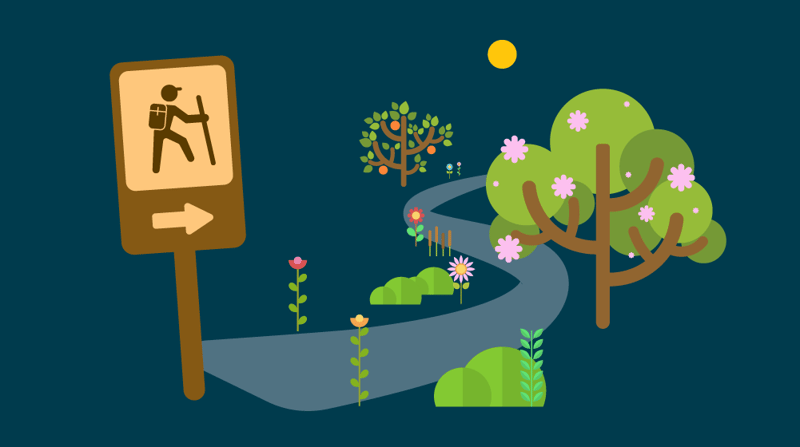“Good things come in threes” has been a popular refrain for as long as I can remember.
What I once thought was just a saying is actually grounded in decades of research. Indeed, recent relationship research suggests that there are three key things that are necessary for cultivating meaningful, long-term relationships: Positivity, consistency, and vulnerability.
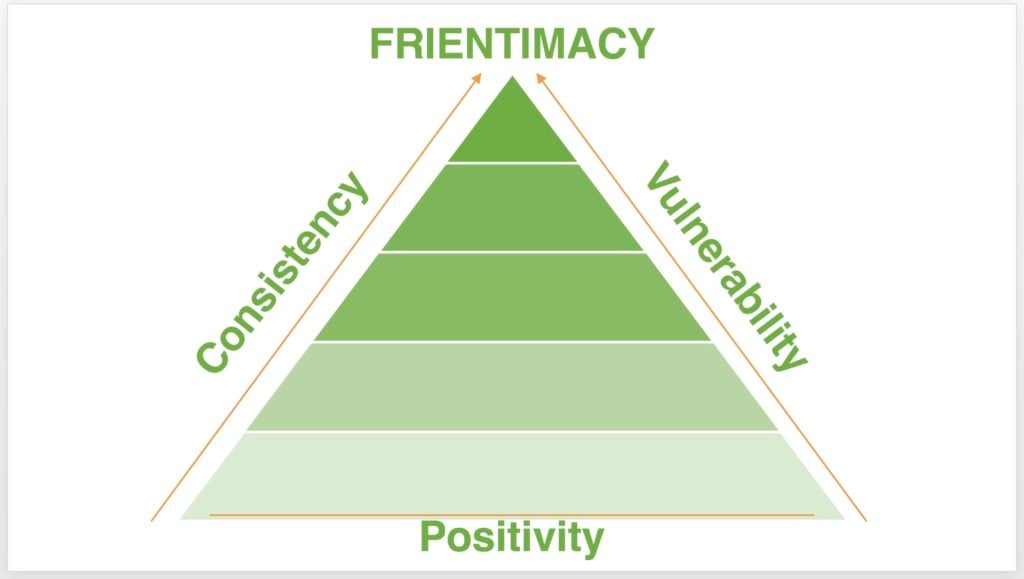
I know how much student affairs professionals like myself cherish tangible tools and resources. Hopefully my tips and tricks will resonate with you as you seek more meaningful relationships all across campus.
Whether you’re new to this exciting journey or you’re already a self-proclaimed relationship expert, I’d like to offer my perspective on one of the key factors to living a worthwhile life and creating a welcoming campus: Human connection.
Cultivating Positive, Consistent, and Vulnerable Relationships in Student Affairs
D.A.R.E. to Connect is a short presentation that I created and facilitated last year for a peer mentoring program at my institution.
D.A.R.E. stands for “Deep, Authentic Relationships that Endure.” I chose this acronym for its parallels between effective relationship-building and two Merriam-Webster definitions of ‘dare’ that I absolutely love:
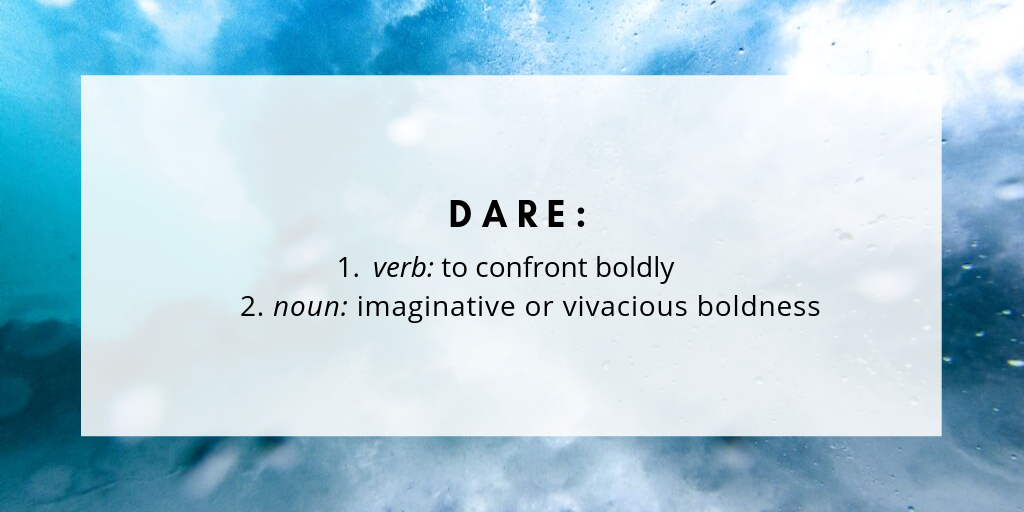
To move past surface-level connections and communities, we need to challenge relationship norms and expectations. We also need to identify people with whom we can always be our authentic selves.
The D.A.R.E workshop participants and I discussed the different types of relationships they have with people in their lives. We discussed the deepest, most meaningful relationships they have — and what made them so.
We also explored one of the most popular TED talks of all time, How great leaders inspire action, delivered by leadership expert Simon Sinek, and his Golden Circle model. It’s a great framework to aid student mentors in inspiring cooperation, trust, and positive change with their mentees.
Combining this with Shasta Nelson’s Frientimacy Triangle, I then presented my own Golden Circle to showcase how intentionally encompassing positivity, trust, vulnerability, and consistency could enhance the mentors’ relationships with each other and with their mentees.
To nurture deep, trust-based connections, start with positivity and vulnerability, which naturally help build rapport. Then, consistency can help the relationship endure.
We also discussed how — without the trust, assurance, and interpersonal commitment (which stem from positivity and vulnerability) — relationships often remain surface-level.
Finally, we discussed six tangible, actionable strategies to improve the mentors’ relationship-building skills, which I have adapted for other audiences.
6 Tactics
1. Get to know everyone by name.
Referring to people by name is a small, yet impactful, way to establish rapport; it allows people to feel more connected and important to you.
We’re hard-wired to seek connection, approval, and community. Remembering someone’s name (and using it continually) taps into these desires, feeds the dopamine receptors in our brains, and helps to create comfort and respect for individuality and identity.
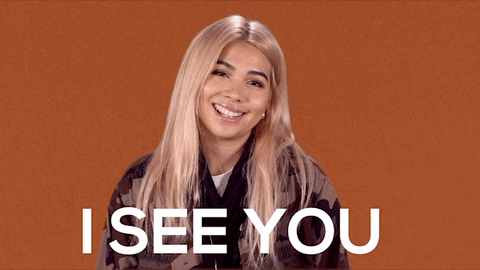
Ultimately, remembering and using someone’s name cultivates D.A.R.E. relationships by establishing a strong foundation for a more personal connection.
Recommended Strategies
- Make flashcards and review them routinely.
- Conjure visual associations when you first meet someone (the more exaggerated, the better).
- Create sound, letter, or rhyme associations with names, and repeat those associations out loud.
- Write names down or have people spell their names out for you.
- Check social media profiles, CRMs, or other databases, in order to see names in multiple places.
2. Learn something personal and unique
Choosing to invest in and care about your colleagues and students is key to relationship-building.
Recommended Strategies
- Create an information sheet with fun facts, personal favorites, and other interesting details about people.
- Develop a series of ice-breaker questions for everyone to answer during onboarding programs or staff meetings.
- Use tried and true personality assessments (such as Myers-Briggs, CliftonStrengths, or Enneagrams) and discuss the results.
- Allot time for building rapport during on-boarding and at regular intervals afterward.
- Ask open-ended questions during one-on-ones or when conducting stay interviews.
3. Be positive and enthusiastic in your interactions
No one likes hanging around an Eeyore for long; they easily bring the mood down with their constant negativity.
Though there is certainly a time and a place for constructive and developmental conversations, building and maintaining positive workplace relationships is vital for career success. Yet, it should be done authentically and genuinely.
You can D.A.R.E. your workplace relationships by focusing on the interpersonal aspects of communication, and ultimately, developing and maintaining a strengths-based culture that’s rooted in kindness and humility.
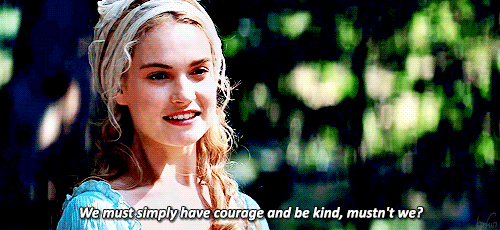
Recommended Strategies
- When appropriate, provide positive comments that are specific, focus on behavior and not the person, and engage a two-way conversation.
- Make your feedback engaging, authentic, and vulnerable.
- Nurture authority, credibility, and trust with those to whom you will be delivering feedback.
- Communicate (early and often) the value that your colleagues and students provide to you, both personally and professionally.
- Establish positive workplace relationships by sharing more of your genuine self at meetings, speaking positively about the people you work with, writing thank you notes, initiating conversations, and participating in activities outside of work.
4. Show people that you care about them
A crucial, yet often-overlooked, aspect of the human experience is our ability to notice, remember, and appreciate ordinary moments.
I often think about small things others have done for me. I’ll never forget these moments, even if the people who did such kind things will never know how deeply they impacted me.
Having unexpectedly lost a dear friend recently, my eyes were forced open to something which the new Brené Brown Netflix special touches upon: The subtle, yet crucial, difference between fitting in and belonging. Only vulnerability separates the two.
I was rudely awakened to the fact that, despite my many surface-level relationships, when I was breaking in my time of need, I had no one to call. I had no one to catch me as I was falling.
Being surrounded by many people is not the same as being known by people. Really feeling known by others means being authentic, and that can be scary.
However, developing and maintaining D.A.R.E. relationships, by bravely forging deeper connections, will ultimately create more meaningful experiences for everyone involved.
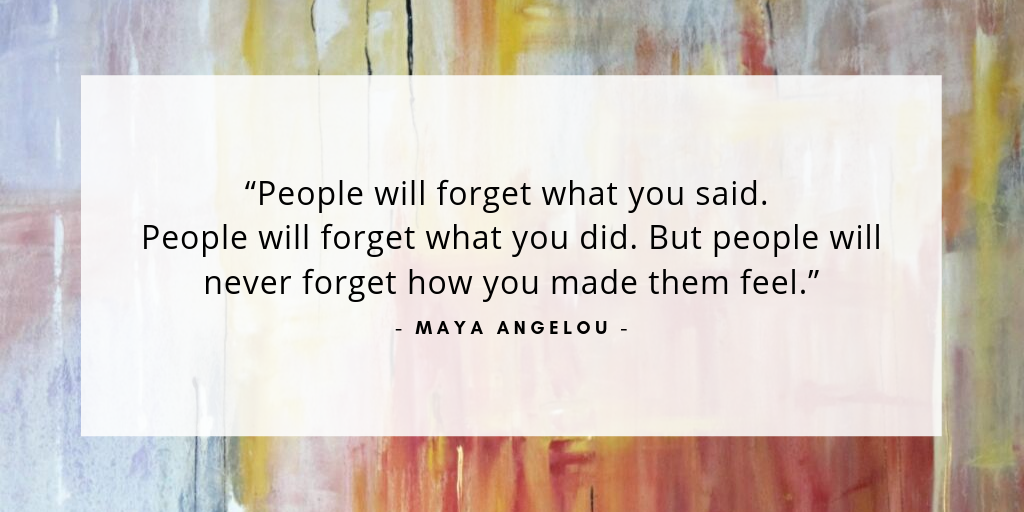
Recommended Strategies
- Personalize meetings to fit the other person’s interests, such as having a one-on-one conversation outdoors if you know the other person enjoys the weather.
- Ask about the person’s extracurricular activities, studies, or other interests, and bring them up again in future interactions.
- Facilitate intentional conversations to clarify their values and love languages.
- Set weekly goals to check-in with colleagues and students, focusing on emotions and experiences.
- Create shared memories by hosting “fun-on-ones,” instead of traditional one-on-ones, at least once per semester.
5. Celebrate commonalities and differences equality
It is our responsibility, as educators and as leaders, to challenge good intentions, turn them into actions, and make diversity more than just a buzzword.
For diversity to thrive in the workplace, there needs to be trust, respect, and authenticity. If we set clear standards and expectations for keeping diversity and inclusion on the agenda, everyone benefits.
It just so happens that the best way to do all that begins with interpersonal connection, a-la D.A.R.E. relationships.
We need to hold ourselves accountable for learning, and then leveraging, the strengths of our colleagues and students — especially when they are different from our own.
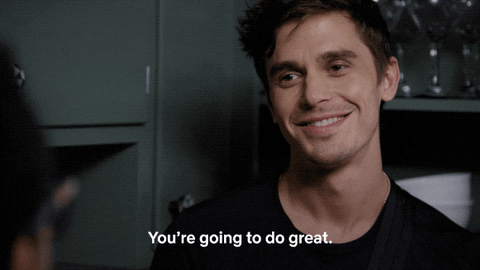
Recommended Strategies
- Model and demonstrate inclusivity, respect, and welcoming attitudes toward commonalities and differences in all forms of communication.
- Reframe inclusion and diversity as something to get excited about.
- Explore cultural differences together and show appreciation for those differences.
- Share your own experiences, learn your blind spots, and be vulnerable enough to hold yourself accountable.
6. Create an environment where curiosity thrives
According to the 2018 Retention Report by the Work Institute, nearly 42 million American employees voluntarily quit their jobs last year. That means that more than one in four employees left their jobs to work somewhere else. If this trend continues, predictions for 2020 climb up to one in three.
Career development has a nine-year streak of being the top reason employees leave their jobs. This includes the type of work, lack of growth and development opportunities, missing advancement or promotional opportunities, and returning to school.
To increase overall retention, satisfaction, and performance, we need to realign our core priorities to build and maintain D.A.R.E. relationships. To foster creativity and innovation, we need to construct a culture of vulnerability in which we’re comfortable with failure.
If you haven’t swatched this short video by Will Smith, discussing the importance of failure, I highly recommend doing so. It might shift your viewpoint on the role of failure.
Recommended Strategies
- Encourage creativity and brainstorming, especially from co-workers and students who don’t hold official leadership roles.
- Recognize positive behavior and contributions with positive reinforcement.
- Remain adaptable, flexible, and forgiving, especially in times of high stress or crisis.
- Keep your expectations in check by asking open-ended questions and by listening more than speaking.
- Know that long-lasting relationships take time to develop, and by modeling appreciation and gratitude, you can create space to make others’ feel valued and prioritized.
How do you cultivate positivity, consistency, and vulnerability in your relationships? Let us know by tweeting @themoderncampus or @Velocirathbone.




